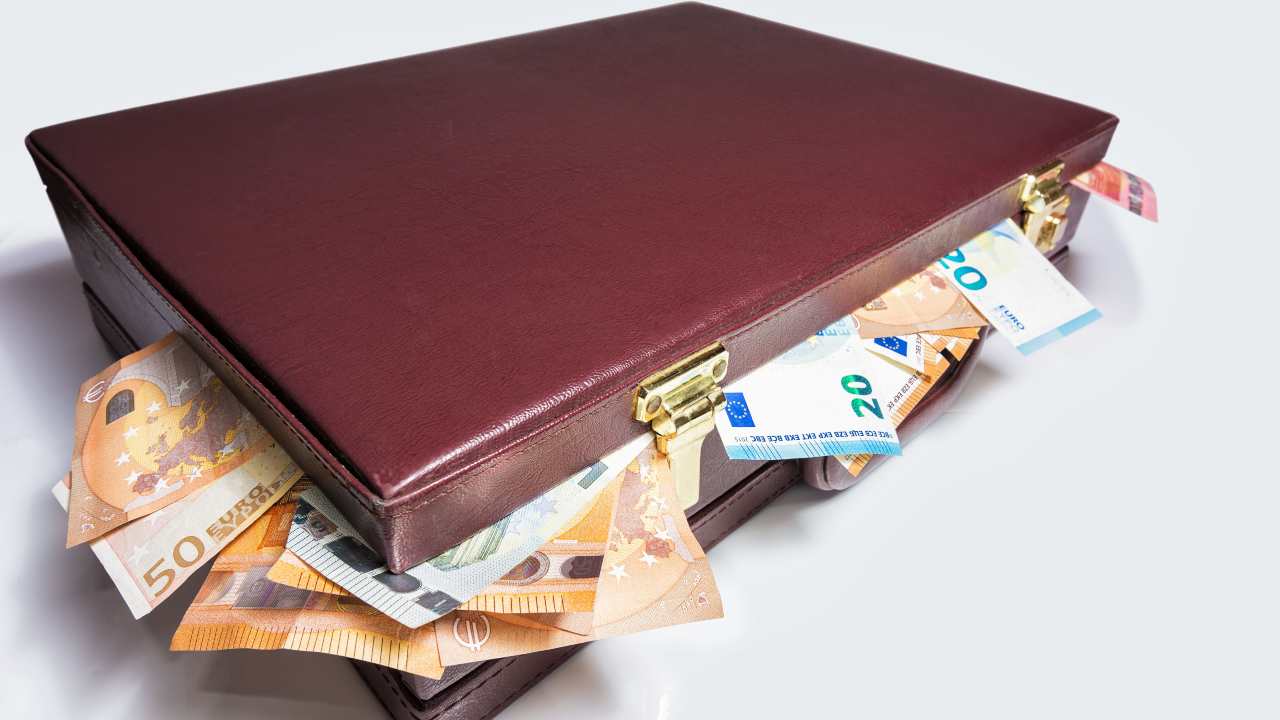Since Italian law does not allow ignorance, it is better to know how much cash you can keep inside your home in 2023.
Suitcase full of money – OipaMagazine.it
In the long run, keep the cash inside the house it becomes less and less convenient. On the one hand there is the continuous development of digital payment technologies, which can be traced, and on the other the pressure from the tax authorities, which I want fight tax evasion better.
Many families, a bit like our ancestors did, tend to keep their money safe inside for fear of losing it.
We are not talking about a loss inherent to a robbery or its destruction due to various accidents or cataclysms, but about a way to avoid being discovered by the tax authorities.
In fact, between anti-tax evasion rules and anti-money laundering, there is less and less money that can be kept at home in 2023.
How much cash can you keep at home?
A clarification is in order: does not exist (for now) a law that limits the amount of cash you can keep at home.
The limit exists but only for cash payments, which went from the previous 1,999.99 euros to the current ones with the 2023 Budget Law. 4.999,99 euro.
Cash at home-oipamagazine.it
What happens if an Italian citizen is caught red-handed while making a cash transaction exceeding 5,000 euros? He risks a sanction of 1,000 euroswhich rises to 5,000 euros if the cash amount exceeds 250,000 euros.
The operator also risks a big one: a fine that goes from 3,000 to 15,000 euros only because he did not report the irregularity.
The same applies to cash payments. However, for cash kept at home, there is no limit, but only a risk.
Which? A robbery, the natural deterioration of money or destruction caused by cataclysms or accidents.
This rule is valid for every physically tangible object, since in the definition of cash there are also i bearer securities and coins.
If we want to protect our money at home, it is better to equip ourselves with some security measures, such as a safe, but also a insurance coverage to protect our house it wouldn’t be bad.
The checks are triggered: what is the risk?
Let’s say someone didn’t file this year the Income Tax Declaration. In this case, the tax authorities may investigate, as they have a strong suspicion that this person is evading taxes.
Therefore, the search inside this citizen’s home is triggered, which must naturally be authorized by a magistrate.
In case during the search, the bailiffs find cash hidden in the house. The suspect will immediately be asked to prove Where does it come from.
In this case, however, the conditional should be used, since the formal request is not governed by law.
The formal request occurs when one exists obvious disproportion between the declared income and the money kept in the case or, if it is a person with nothing, between the absence of income and money.
If, as mentioned at the beginning, this person does not present the declaration, the money found in the house will be considered as coming from illicit activities; at this point, the only way out of this situation is to demonstrate that the money comes from a donation or from an ongoing business on which taxes have already been paid.
Tax evasion-oipamagazine.it
These checks are certainly not carried out across the board, but only when the tax authorities have sufficient evidence of one possible escape perpetrated by a citizen.
Together with the non-submission of the Income Tax Return, there must be suspicion of a significant evasion, for example more than 50,000 euros per year.
Instead, despite the declaration having been presented, there is a concealment of the compensation, with the income that exceeds 10,000 euros.
Or, you discover undeclared income that goes over 10% of their totality or amount to approximately 2 million euros.
If a forgery is ascertained, the assessment at the domicile takes place when the tax that has been evaded is more than 30,000 euros or the items that have been subtracted from taxation are greater than 5% of the assets.
Since these offenses are criminal in nature, together with fines and the seizure of cash funds, imprisonment becomes automatic.
Withdrawal and deposit limit in 2023
Another problem with cash kept at home is when you go to the bank to deposit it. If the payments are limited to a few hundred euros, no problem.
However, if the sum is large, ei account paymentsnew, tax assessment by the authorities could be the consequence.
This is the typical case where the Consolidated Law on Income Taxes obliges an Italian citizen to declare where that money comes from.
In the absence of written proof, the tax assessment and the related sanctions are triggered immediately. All this makes the Tax Office understand how just assume that some payments are unjustified to trigger sanctions.
The same goes for withdrawals, where the subject not only has to explain where the money comes from, but also the reason for withdrawal.
Of course, withdrawals must exceed 10,000 euros in a monthor they must be continuous and very close, as in the case of sums of 1,000 euros withdrawn two days apart.
2023-09-10 19:52:07
#cash #home #Italian #law

